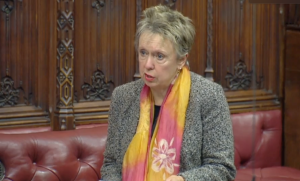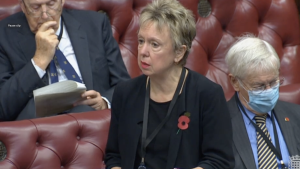We want to see laws requiring schools to hold acts of worship abolished.
The laws are archaic, unnecessary and breach children's freedom of religion or belief.
The United Kingdom is the only Western democracy which legally imposes worship in publicly funded schools.
The law in England and Wales provides that children at all maintained schools "shall on each school day take part in an act of collective worship". Northern Ireland and Scotland have similar laws.
Even in schools with no religious designation, the worship must be "wholly or mainly of a Christian character".
School assemblies are an important feature of school life. They foster a sense of community in schools and promote the moral and social development of pupils.But acts of worship are neither necessary nor desirable to achieve these educational goals.
The majority of the public (52%) say school assemblies should be about moral issues, whereas just 26% agree that they should feature religious worship.
Many schools ignore the law, but where it is enforced it causes division and discrimination, as well as opening the door to evangelism and proselytising.
Parents have the right to withdraw children from collective worship, but many this is an unreasonable imposition on both themselves and their children. Parents should never have to withdraw their children from any part of the school day to ensure their rights to raise their child according to their own religious or philosophical convictions are respected.
Collective worship laws are outdated relics of a society unrecognisable from the diverse and pluralistic Britain of today, where citizens hold a wide variety of religious beliefs, and increasingly, no religious beliefs. The abolition of collective worship is long overdue.
Take action!
1. Write to your MP
Ask them to help end compulsory worship in schools
2. Share your story
Tell us why you support this campaign, and how you are personally affected by the issue. You can also let us know if you would like assistance with a particular issue.
3. Join us
Become a member of the National Secular Society today! Together, we can separate religion and state for greater freedom and fairness.
Latest updates
Bill to replace worship with inclusive assemblies heads to Commons
Posted: Wed, 8 Dec 2021 15:52
A bill to replace mandatory collective worship with inclusive assemblies in non-faith schools has cleared the House of Lords.
The private member's bill, introduced by Liberal Democrat peer Lorely Burt, cleared its third reading and will now head to the House of Commons where it will be picked up by Conservative MP Crispin Blunt.
Under the bill:
- Schools in England would no longer be required to organise compulsory acts of religious observance, but pupils would be permitted to opt into voluntary acts of worship if they wish.
- Schools which are not religious in character would be required to provide assemblies that develop the "spiritual, moral, social and cultural education" of pupils regardless of religion or belief.
- Faith schools would still be able to hold collective worship but would be required to provide a meaningful alternative for pupils withdrawn.
The National Secular Society, which has long campaigned for an end to the law mandating worship in schools, has backed the bill, calling it a "positive step towards inclusive education".
Current situation
All state schools are currently required to provide a daily act of worship that is "wholly or mainly" Christian in character. The law has long been widely flouted and unenforced. However, the government recently said it would "investigate" schools which breached the law requiring worship.
There is no independent right of withdrawal for young people, but pupils can be excluded at their parents' request.
The existing law has been criticised by a UN children's rights committee, which earlier this year asked the government what steps it was taking to repeal it. The UK is the only sovereign state in the world to legally impose Christian worship in schools.
Case for reform
Speaking in the House of Lords, Lorely Burt spoke of the "importance of enabling children to take part in inclusive assemblies as part of their school day, and the pressing need to address the current injustice – whereby those children who do not wish to take part in collective worship can at best be left twiddling their thumbs, and at worst be ostracised from their peers, while the structured school day carries on without them."
She said the bill "would instead free up schools to hold assemblies on topics parents do want to see covered and uphold children's rights to an inclusive education."
Government position
The government has insisted there is "no need" to amend existing legislation on collective worship. The bill is therefore unlikely to be given the support it would need to have any realistic chance of becoming law.
NSS Comments
National Secular Society Chief Executive, Stephen Evans, said:
"All aspects of school life, including assemblies, should be equally inclusive of all pupils, irrespective of their religion or belief background. The government's failure to meet its human rights obligations by ending mandated worship in schools is inexcusable. Pupils should be able to decide for themselves whether to engage in worship, not have it imposed on them by law.
"The collective worship requirement is a relic from a society nearly unrecognisable from the one we live in today. Parliamentarians from across the political divide should seize this opportunity to promote pupils' freedom of religion or belief and a more inclusive approach to state education."
Bill to end compulsory worship in non-faith schools progresses
Posted: Wed, 10 Nov 2021 14:19
A bill to end the duty on non-faith schools in England to hold daily acts of Christian worship has progressed in parliament.
The private member's bill, introduced by Liberal Democrat peer Lorely Burt (pictured), today passed through its committee stage in the House of Lords and will progress to a third reading if the government makes time available for debate.
Schools in England and Wales are legally required to hold daily acts of collective worship which are "wholly or mainly of a Christian character".
Under Baroness Burt's bill:
- Schools would not be required to organise compulsory acts of religious observance, but pupils would be permitted to opt into voluntary acts of worship if they wish.
- Schools which are not religious in character would be required to provide assemblies that develop the "spiritual, moral, social and cultural education" of pupils regardless of religion or belief.
Faith schools would still be able to hold collective worship, but would be required to provide a meaningful alternative for pupils withdrawn.
A majority of peers supported the bill at its second reading in the House of Lords in September.
The National Secular Society, which has briefed peers throughout the bill's progression, has also welcomed the bill as a significant step in the right direction.
In its briefing, the NSS said the bill "responds to successive governments' failure to reform the law or guidance surrounding collective worship."
It said it "provides relief" to the majority of non-faith schools which "must currently skirt the law in order to provide inclusive assemblies", and "resolves conflicts" between the legal requirement for collective worship and human rights laws and obligations.
But the government is opposing the bill, which makes it unlikely to become law.
NSS comment
NSS head of education Alastair Lichten said: "The government has no business mandating worship in schools, and schools have no business coercing religious observance from pupils.
"Inclusive assemblies that do not incorporate acts of worship are far more suited to 21st century education and far more conducive to a cohesive school environment where all children from all backgrounds are treated equally.
"The cross-party support and incoherent opposition to this bill shows the clear will for change. The government should ensure this bill has time for debate, as a first step in fulfilling their duty under the UN Convention on the Rights of the Child to respect pupils' freedom of belief."
Notes
- The current law has long been widely ignored, with the de facto acceptance of the Department for Education and Ofsted inspectors. But the government recently said it would "investigate" schools which breached the law requiring worship in schools.
- The UN Committee on the Rights of the Child recently asked the UK what steps it was taking to repeal laws requiring worship in schools.




